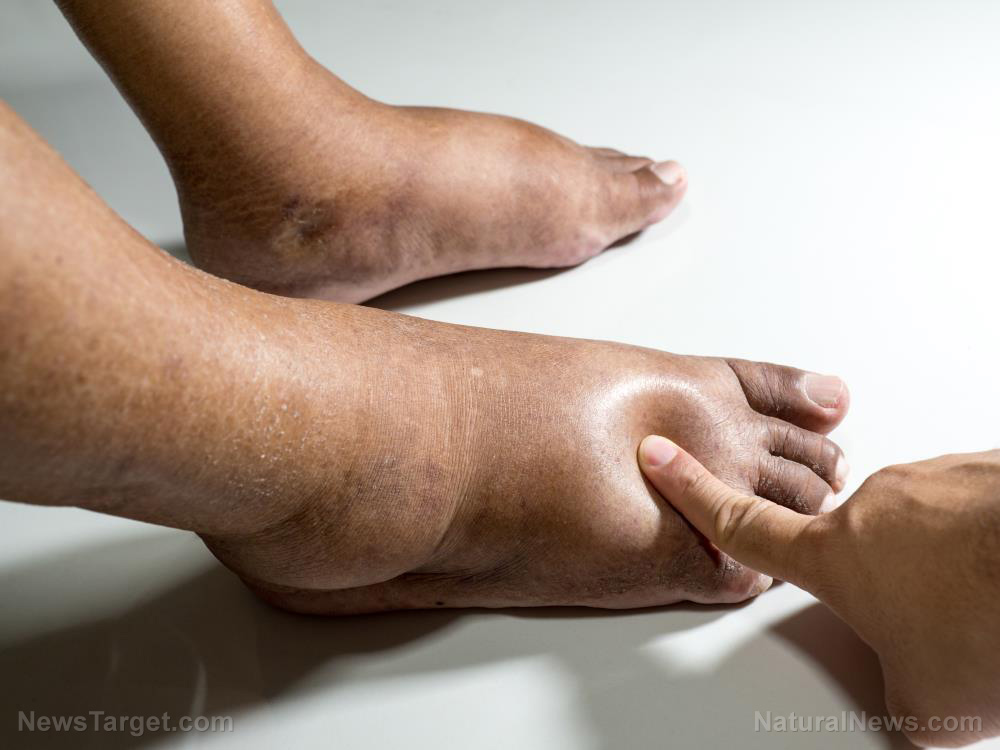Common chemicals in shampoo and soap found to increase diabetes risk in women
02/15/2023 / By Zoey Sky

For the average consumer, products like shampoo and soap are necessary for maintaining personal hygiene. But according to a study, using shampoo and soap can increase diabetes risk in women.
Researchers discovered that phthalates, a common chemical in personal hygiene products like shampoo and soap, can raise a woman’s risk of developing diabetes by more than 60 percent. Data also showed that people with higher levels of phthalates in their urine are at least 30 to 63 percent more likely to develop diabetes.
The study was published in The Journal of Clinical Endocrinology & Metabolism and conducted by scientists from the University of Michigan (U-M).
Why are phthalates bad for you?
Phthalates are used to improve the durability and flexibility of plastic products. These chemicals are common in children’s toys, food and beverage packaging.
Phthalates are also used in fragrances to help the scent last longer on the skin.
But researchers warned that phthalates are also endocrine-disrupting chemicals (EDCs) because they mimic estrogen. Research has shown that phthalates are linked to breast and ovarian cancer, even early menopause. (Related: FDA rejects petitions to BAN hormone-disrupting phthalates in food packaging.)
When used in shampoos, phthalates act as a binding agent. However, these chemical compounds are easily absorbed into the human body.
Health experts have linked phthalates to:
- Changes in hormone levels and function
- Gestational diabetes
- Increased risk of pregnancy loss
- Low sperm count and infertility
Research also suggests that the compounds may also harm the kidneys, immune system, liver and thyroid.
Additionally, phthalates are known environmental pollutants. They can affect reproduction in animals as they do in humans.
Phthalates and diabetes risk
Dr. Sung Kyun Park, one of the researchers involved in the study, said phthalates may contribute to a higher incidence of diabetes in women over a six-year period. Diabetes risk was also higher in White women, added Park.
Those exposed to phthalates daily increase their risk of several metabolic diseases. Park warned that EDCs should be addressed immediately since they are “harmful to human health.”
EDCs may also change how humans store fat, resulting in obesity. Data from other studies have found that some phthalates may also be linked to fertility issues.
In one trial, researchers reported that women are more likely to give birth prematurely if they have high levels of phthalates in their bloodstream before conceiving.
An analysis of 1,308 women across the U.S. showed that above average concentrations of phthalates increased the incidence of Type 2 diabetes by 30 to 63 percent. At least five percent of participants developed diabetes over the six-year period.
“Our research is a step in the right direction toward better understanding phthalates’ effect on metabolic diseases, but further investigation is needed,” concluded Park.
Scientists detected phthalates, which are used during the manufacturing of plastic, in different common products ranging from bottled water to vinyl floorboards. Health organizations have even banned some of their manufacturing chemicals due to concerns over their safety.
Before the U-M report, previous studies focused largely on rat subjects.
Tips for avoiding phthalates in common products
Phthalates aren’t usually labeled, but these chemicals are often found in various items like beauty products and even shower curtains.
To avoid phthalates, look for products labeled phthalate-free, plastic alternatives or items that are certified organic and made with natural ingredients.
Here is a list of some of the most common household items that often contain phthalates:
- Air fresheners
- Deodorants
- Household fabrics
- Lotions
- Makeup
- Medical devices
- Paints
- Perfumes
- Plastic toys
- Printing inks
- Processed foods
- Shampoos and conditioners
- Shower curtains
- Skincare products
- Some medication coatings (Check with your pharmacist.)
- Storage containers made from plastic
- Table cloths
Choose whole foods
Processed foods tend to contain more phthalates than organic or unprocessed foods so it’s best to incorporate as many whole foods into your diet as you can.
This helps reduce your phthalate exposure and whole food are a great source of beneficial phytonutrients and antioxidants.
When shopping, look for foods with less packaging. Following a balanced diet and eating a variety of foods can support your body’s natural detoxification pathways to help naturally eliminate toxins like phthalates.
Store leftovers in non-plastic containers
Avoid contaminating leftover food by storing it in non-plastic containers like ceramic, glass, silicone or stainless steel.
Avoid household plastics
Phthalates are considered plasticizers or chemicals that make plastics more durable and pliable, and you’ll often find them in food containers and plastic wraps and materials like PVC and vinyl.
Avoid plastics labeled 3, 6 or 7. Common household items made from PVC include tablecloths, toys and shower curtains so look for plastic-free alternatives for these items.
Replace plastic toys
Children are more susceptible to the harmful effects of phthalates.
Replace their plastic toys with those made from bamboo, organic cotton, wood or other natural materials.
Use all-natural skin and beauty products
Synthetic fragrances in different products may also contain toxins like phthalates. Avoid absorbing phthalates through your skin by using products that are naturally unscented and contain only pure, organic and plant-based ingredients.
Additionally, all-natural products are often better at supporting the skin microbiome for glowing, healthy skin.
Reduce diabetes risk if you are a woman by avoiding products like shampoo and soaps that contain harmful chemicals like phthalates.
Visit Chemicals.news to learn more about the dangerous ingredients present in common household products.
Watch the video below to know more about fragrances that contain EDCs and phthalates.
This video is from the Puretrauma357 channel on Brighteon.com.
More related stories:
Common plastic additive linked to fertility problems.
Study reveals how mystery chemicals in plastics can cause obesity.
Unilever recalls 1.5M products that may contain elevated levels of cancer-causing benzene.
Sources include:
Submit a correction >>
Tagged Under:
conditioners, Cosmetics, diabetes, disease causes, EDC, Endocrine disruptors, health science, phthalates, plastics, poison, products, research, shampoo, toxic chemicals, toxic ingredients, toxins, women's health
This article may contain statements that reflect the opinion of the author




















